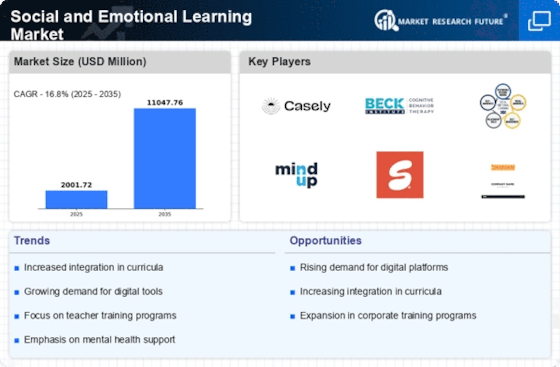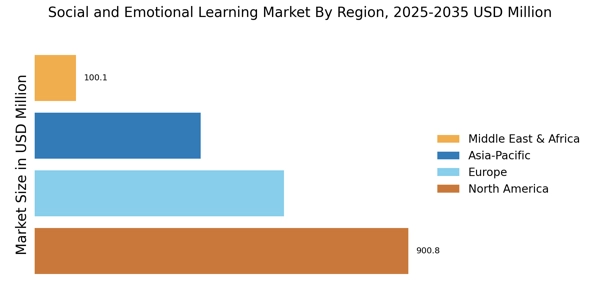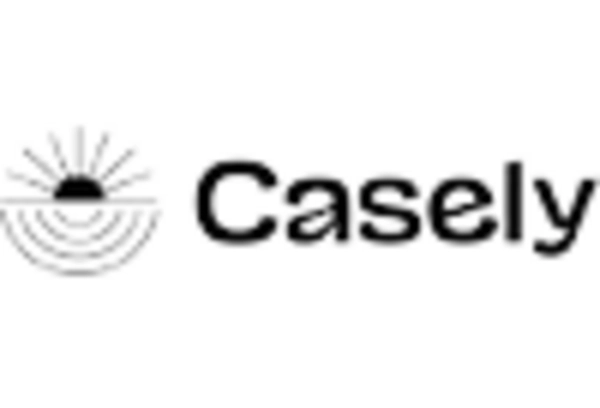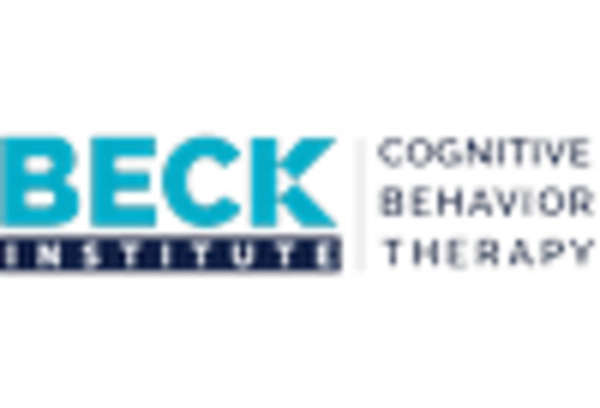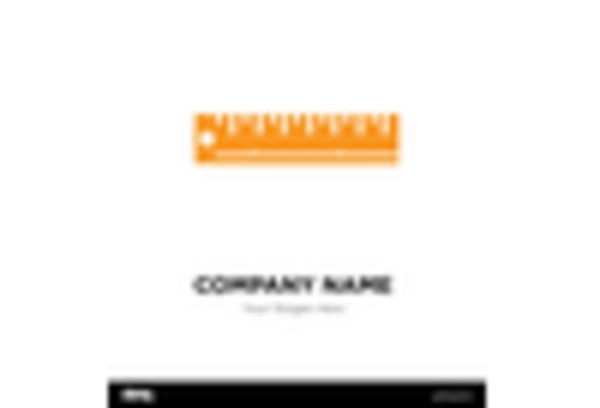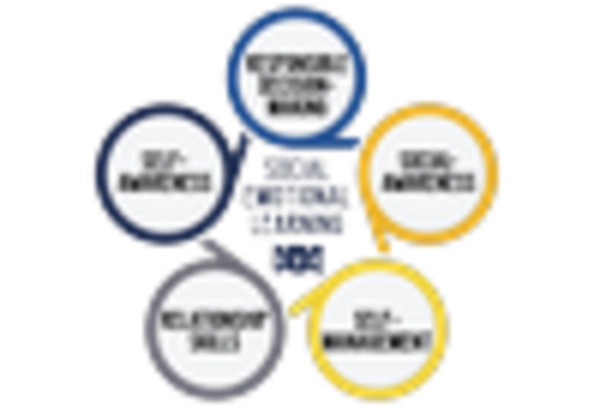By Region, the study provides market insights into North America, Europe, Asia-Pacific, Middle East & Africa, and South America. In terms of revenue, Europe held the largest share of 36.7% in the Social and Emotional Learning market in 2022 and is expected to maintain its dominance during the forecast period. The Social and emotional learning (SEL) market in Europe is experiencing growth as schools recognize the importance of holistic development. SEL programs promote emotional intelligence, self-awareness, and relationship skills. Implementation varies across countries, with some integrating SEL into curriculum and others focusing on teacher training.
Research institutions contribute to evidence-based practices. Multilingual resources cater to Europe's linguistic diversity. Government support and funding further encourage SEL initiatives. Some European countries have shown support for SEL initiatives through government policies, guidelines, and funding opportunities. Government support can play a crucial role in promoting the growth and implementation of SEL programs in schools.
Figure 3: SOCIAL AND EMOTIONAL LEARNING MARKET SIZE BY REGION 2022&2032
Further, the major countries studied in the market report are the U.S., Canada, Germany, France, the UK, Italy, Spain, China, Japan, India, Australia, South Korea, and Brazil.
The Social and emotional learning market in North America has been experiencing significant growth in recent years. Factors such as increased awareness of the importance of social and emotional skills, recognition of their impact on academic performance and overall well-being, and the integration of SEL into educational policies and initiatives have contributed to the market's expansion. SEL programs have gained traction in schools and educational institutions across North America. Many states and districts have started incorporating SEL into their curriculum, teacher training, and school policies. This widespread adoption has resulted in a higher demand for SEL resources and services.
Various organizations, both for-profit and nonprofit, are actively involved in the SEL market. This includes educational publishers, technology providers, research institutions, and nonprofit organizations specializing in SEL. Collaborations and partnerships among these stakeholders have helped drive innovation and expand the market reach.
The Asia Pacific region consists of diverse markets with varying levels of economic development and educational systems. Countries like Singapore, Australia, and New Zealand are known for their advanced education systems that emphasize SEL. Emerging markets such as India, China, and Southeast Asian countries are also witnessing a rising interest in SEL. Several countries in the region have implemented government-led initiatives to promote SEL in schools. These initiatives include the integration of SEL into curriculum frameworks, teacher training programs, and policy guidelines.
Educators, policymakers, and parents in the MEA region are increasingly recognizing the importance of SEL in promoting students' holistic development. There is a growing awareness of the need to address social and emotional skills alongside academic learning. The emphasis on students' well-being, mental health, and character development is driving the demand for SEL programs in the MEA region. SEL is seen as a means to support students' emotional well-being and resilience.


